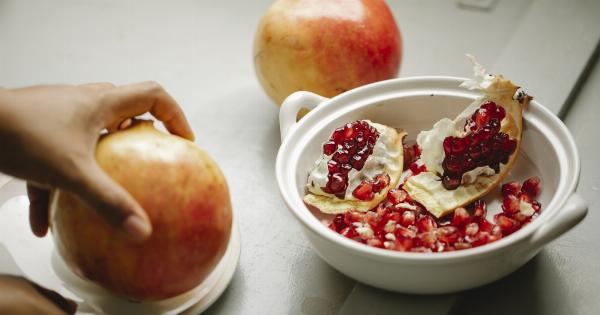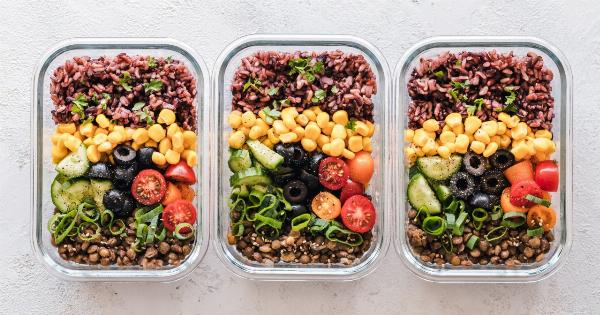Cauliflower, a versatile cruciferous vegetable, is known for its numerous health benefits. From its rich nutrient profile to its potential cancer-fighting properties, this vegetable deserves a place on everyone’s plate.
In this article, we delve into the incredible health benefits of cauliflower, particularly its ability to combat cancer.
1. Cruciferous Vegetables and Cancer
Cruciferous vegetables, including cauliflower, broccoli, kale, and Brussels sprouts, belong to the Brassicaceae family. These vegetables are renowned for their potential cancer-fighting properties.
Research suggests that regularly consuming cruciferous vegetables may lower the risk of certain types of cancer.
2. Sulforaphane: A Potent Anticancer Compound
Sulforaphane, a powerful anticancer compound found in cauliflower, has attracted considerable attention from researchers.
Studies have shown that this compound may have the ability to inhibit the growth of cancer cells, induce apoptosis (cell death) in malignant cells, and reduce the risk of tumor formation.
3. Indole-3-Carbinol: Regulating Hormones and Preventing Cancer
Cauliflower also contains indole-3-carbinol, a compound known for its potential to regulate hormone metabolism. This compound may play a crucial role in reducing the risk of hormone-related cancers, such as breast and prostate cancer.
Indole-3-carbinol has been shown to inhibit the activity of certain cancer-promoting enzymes and prevent the growth of cancer cells.
4. Anti-Inflammatory Properties
Chronic inflammation is closely linked to the development and progression of cancer. Cauliflower contains various anti-inflammatory compounds, including indoles and vitamin C, which help reduce inflammation in the body.
By combating inflammation, cauliflower may contribute to the prevention of cancer and the maintenance of overall health.
5. Glucosinolates: Natural Detoxifiers
Glucosinolates are sulfur-containing compounds found in cruciferous vegetables like cauliflower. These compounds have been shown to enhance the body’s detoxification processes, helping eliminate harmful substances and potential carcinogens.
By supporting the body’s natural detoxification pathways, cauliflower can play a role in reducing the risk of cancer.
6. Rich in Vitamins and Minerals
Cauliflower is packed with essential vitamins and minerals that contribute to overall health. It is an excellent source of vitamin C, which acts as an antioxidant, protecting the body’s cells from damage caused by free radicals.
Additionally, cauliflower provides significant amounts of vitamin K, folate, and several B vitamins, which are essential for various bodily functions.
7. Fibre-Rich for Digestive Health
Dietary fiber is known for its role in maintaining a healthy digestive system. Cauliflower offers a good amount of fiber, promoting regular bowel movements and preventing constipation.
A healthy digestive system is essential for overall well-being and may contribute to reducing the risk of certain types of cancer, including colorectal cancer.
8. Versatile and Delicious
One of the many advantages of cauliflower is its versatility in the kitchen. It can be enjoyed in numerous ways, from roasted or steamed to mashed or served as a base for a low-carb pizza crust.
Incorporating cauliflower into your diet is both nutritious and delicious.
9. How to Incorporate Cauliflower into Your Diet
There are countless ways to incorporate cauliflower into your diet. Here are some ideas:.
– Roast cauliflower florets with olive oil, garlic, and your favorite spices.
– Make a nutritious cauliflower rice by pulsing cauliflower in a food processor and sautéing it with vegetables.
– Blend cooked cauliflower into a creamy soup with onions, vegetable broth, and herbs.
– Enjoy raw cauliflower florets with a healthy dip or hummus.
– Make a cauliflower-based pizza crust by blending cauliflower, eggs, cheese, and herbs, then baking until crispy.
10. Conclusion
Cauliflower proves to be a remarkable vegetable with its potential to fight against cancer. Its compounds, including sulforaphane and indole-3-carbinol, demonstrate anticancer properties by inhibiting the growth of cancer cells and regulating hormones.
Additionally, cauliflower’s anti-inflammatory and detoxifying properties, along with its rich nutrient profile, make it an excellent choice for supporting overall health.





























